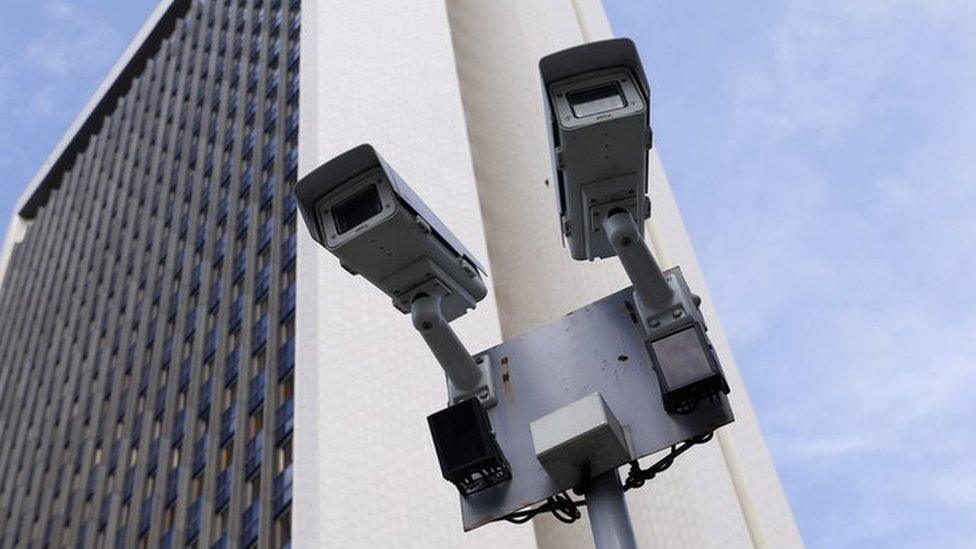CCTV: Welsh police and government turn off Chinese Hikvision cameras
- Published
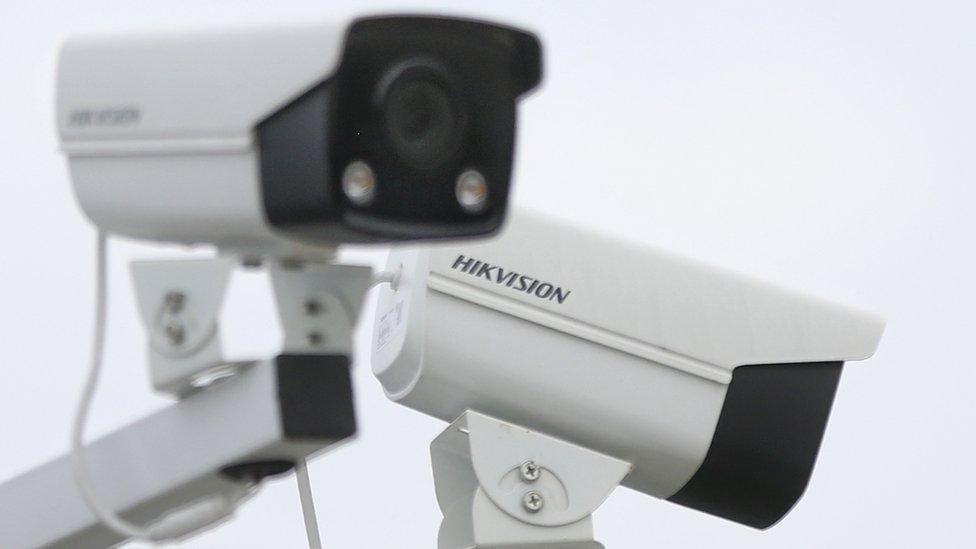
Hikvision cameras are used by many public bodies across the UK
The use by many Welsh public bodies of CCTV cameras linked to China is set to be scrapped or paused after concerns about security and human rights.
BBC research found Hikvision cameras are used by three of the four Welsh police forces and the Welsh government.
CCTV commissioner Fraser Sampson said the use of the surveillance systems was a "real risk" on "every corner".
Hikvision said it was false to represent the cameras as a threat to national security.
Prof Sampson spoke to BBC Wales after concerns UK police forces are leaving themselves vulnerable to spying by using Chinese-owned surveillance systems.
Hikvision, part-owned by the Chinese government, has contracts with the Welsh government, and North Wales, Dyfed-Powys and Gwent Police.
But amid security and ethical concerns the Welsh government and two forces, Gwent and North Wales, are now either changing surveillance systems or freezing the purchase of equipment.
It comes after the US shot down a number of objects over North American airspace in recent days - including a suspected spy balloon - which China said was one of its weather balloons.
Watch: 'What’s going on?' The mind-boggling balloon mystery in 61 seconds
Prof Sampson said while people were concerned about balloons, the cameras were "a risk staring us in the face".
In November 2022 the UK government told its departments to stop installing surveillance cameras made by Chinese firms on "sensitive sites", because of security concerns. This advice was also sent to police forces.
The policy followed fears that firms could be required by Chinese law to co-operate with Beijing's security services.
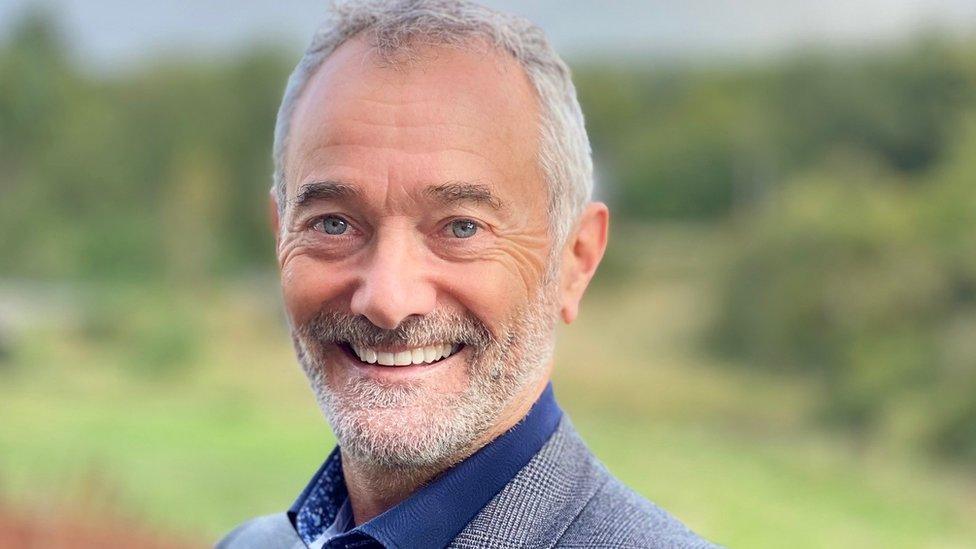
Prof Sampson said the use of the surveillance systems was a "real risk" on "every corner"
"We've put these cameras on every corner and I'd have thought that's our principal risk rather than the prospect of some high altitude balloon passing over here," he said.
"You either trust your technology partners for intrusive surveillance or you don't, and a lot of the evidence is pointing in the don't direction."
"If the people we trust, like the police, aren't able to trust their surveillance technology partners, then we're in a lot of trouble."
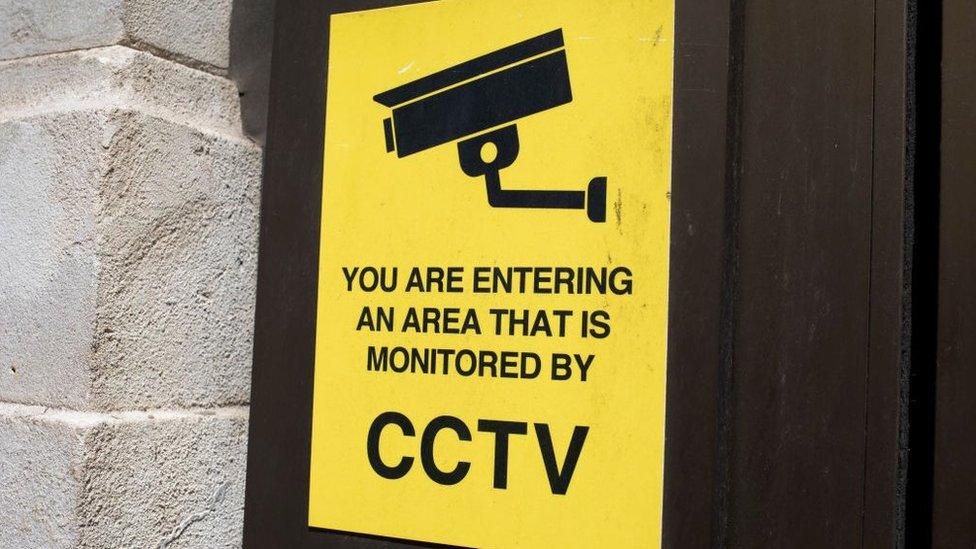
CCTV has become a common sight in many public areas in recent decades
Prof Sampson said there were concerns about the reported links of use of the cameras to alleged human rights abuses against Uyghurs - a mostly Muslim ethnic minority - in China.
China has denied the allegations and Hikvision has previously said the accusations are "unsubstantiated and not underpinned by evidence".
Prof Sampson said while procurement rules meant public bodies had keep down costs, he had seen no evidence ethics had been taken into account when providers were chosen.
"Given that we're going to be relying more and more on increasingly intrusive public space surveillance in the future - I think this is the most critical area to get right," he said.
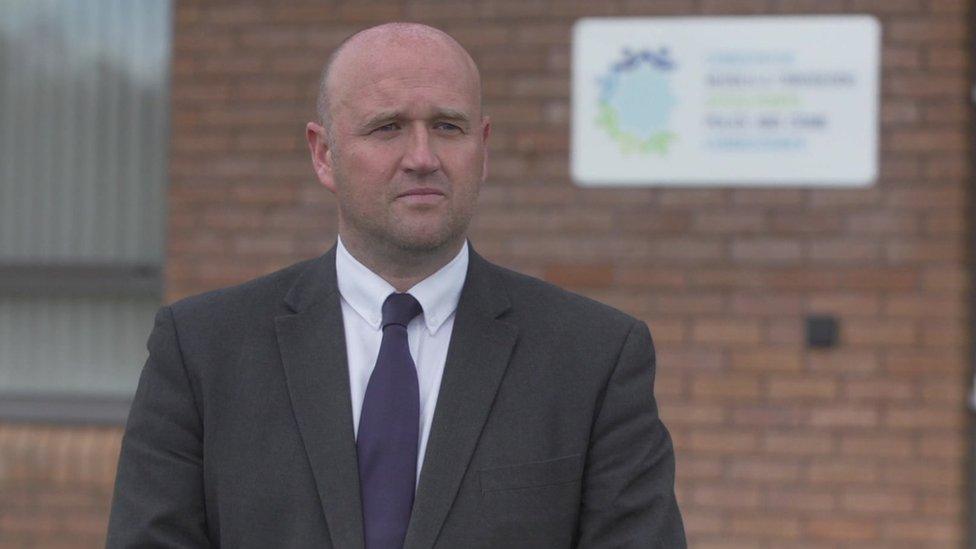
"We have got significant safeguards in place in relation to our CCTV system," said Dyfed-Powys Police and Crime Commissioner Dafydd Llywelyn
North Wales Police and Gwent Police said they had some Hikvision equipment, but would not purchase any more until "the formal position is made clear by the UK government".
In 2018, Dyfed-Powys Police spent £1.5m on Hikvision CCTV.
The force's Police and Crime Commissioner Dafydd Llywelyn said while he understood concerns it would be hard to "immediately de-establish" the system.
He says forces would need UK government money for a replacement, and the concerns would play a "major part in decision making".
"We have got significant safeguards in place in relation to our CCTV system," he said.
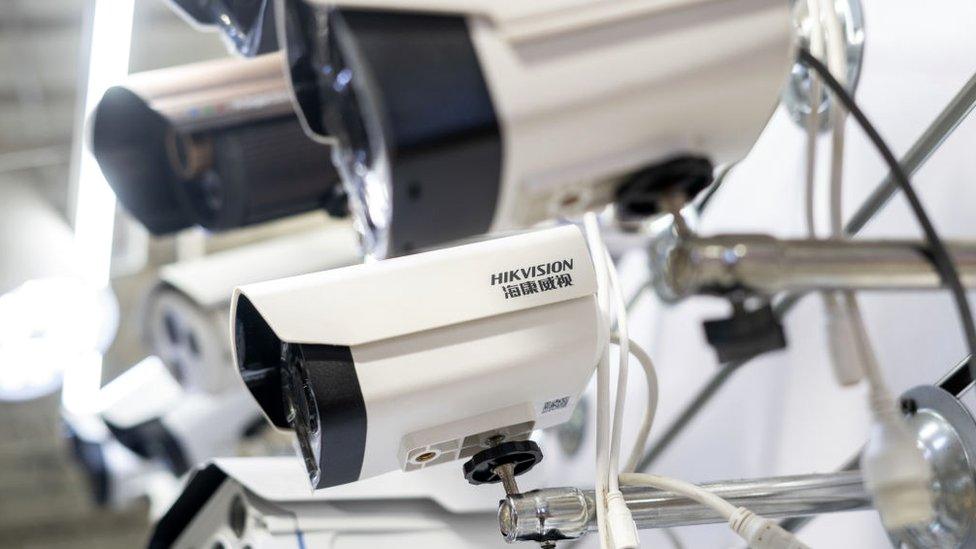
"It is categorically false to represent Hikvision as a threat to national security," says the Chinese company
When the BBC first contacted the Welsh government, officials said they had no plans of removing the Hikvision CCTV system until the routine inspection.
At the time, Prof Sampson accused the Welsh government of being a weak link with regards to national security, and also called for urgent action on cameras in public:
"It's one system. So if you infect one part of it, you infect all of it," he said.
'Really alarming'
The Welsh government is now changing the system after security and ethical concerns.
"We review the security cameras used as part of our CCTV systems as part of their regular maintenance cycle, which is leading to the installation of a replacement CCTV system.
"We take security and ethical factors into consideration during any procurement process. Any outright ban on the use of particular systems would need to be implemented at a UK level," the Welsh government said.
Campaign group Big Brother Watch said the use of Hikvision cameras went "beyond George Orwell's worst nightmare".
"The fact that citizens in Wales are being monitored by these cameras is really alarming," it said.
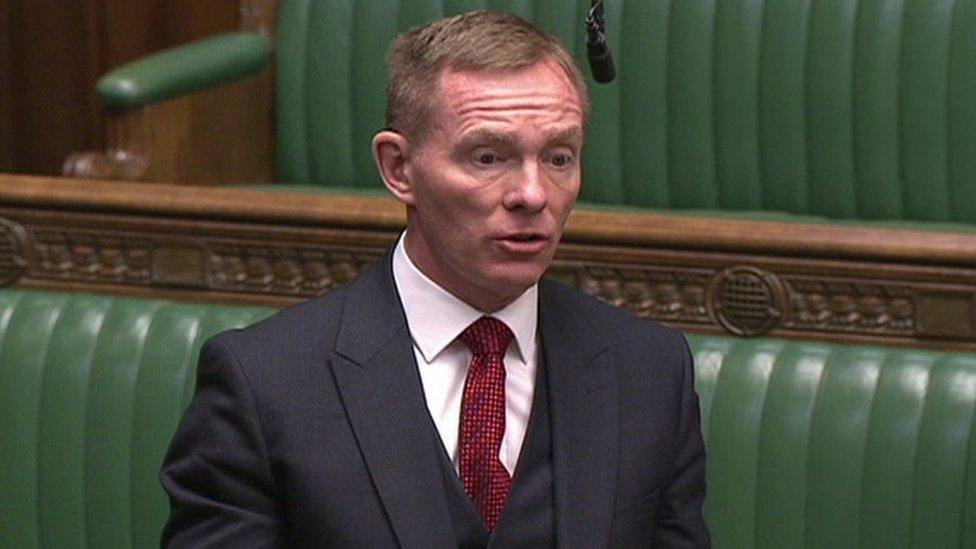
Rhondda MP Sir Chris Bryant wants Chinese surveillance systems banned
Rhondda MP Chris Bryant sits on the Commons Foreign Affairs Committee and is one of 67 cross-party MPs who have called for a ban of Chinese-made surveillance equipment.
He said he did not trust the company not to be storing information being sent back to Beijing.
"I'm fully in favour of CCTV. I'm just not in favour of foreign governments storing information about us all."
"I think we have to take seriously the fact that Xinjiang province has seen millions of Uyghurs being effectively imprisoned by the Chinese government.
"We shouldn't be supporting these Chinese companies. We should be building these things in our own country.
'Categorically false'
"We shouldn't be buying their products - why can't we make CCTV cameras here in the Rhondda?"
Hikvision told the BBC: "It is categorically false to represent Hikvision as a threat to national security.
"No respected technical institution or assessment has come to this conclusion.
"Hikvision cameras are compliant with the applicable UK laws and regulations and are subject to strict security requirements. We have always been fully transparent about our operations in the UK."
The Home Office said the security of surveillance systems was of "vital importance".
"We have a range of measures in place to ensure the integrity of our arrangements," a spokesperson said.
Related topics
- Published14 February 2023
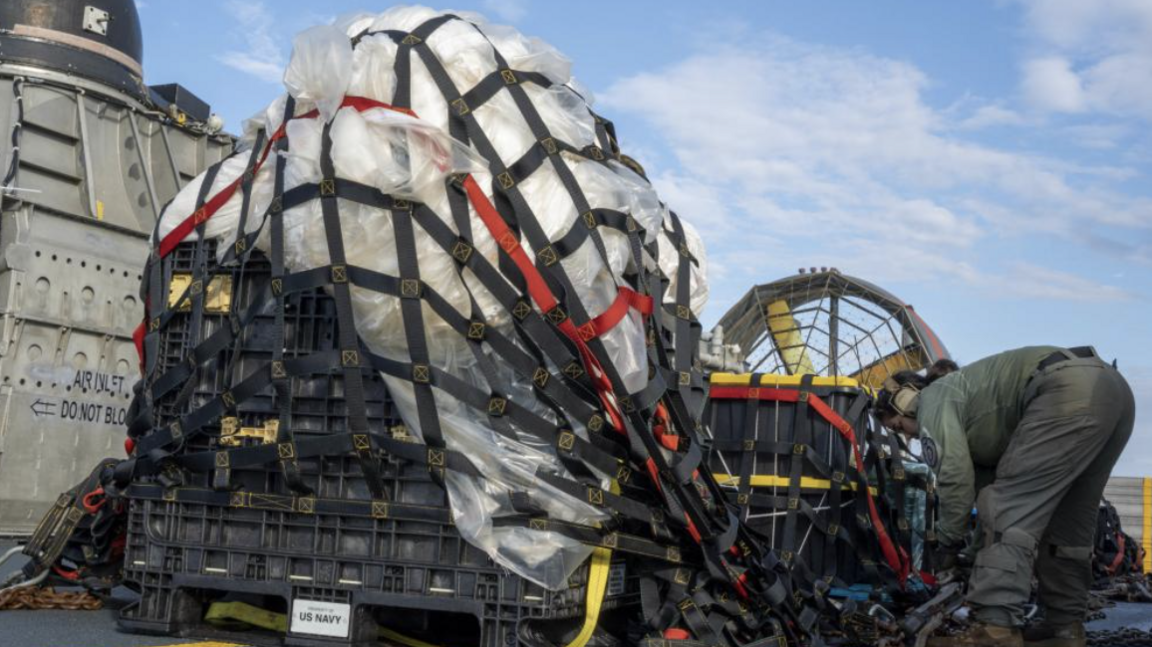
- Published13 February 2023
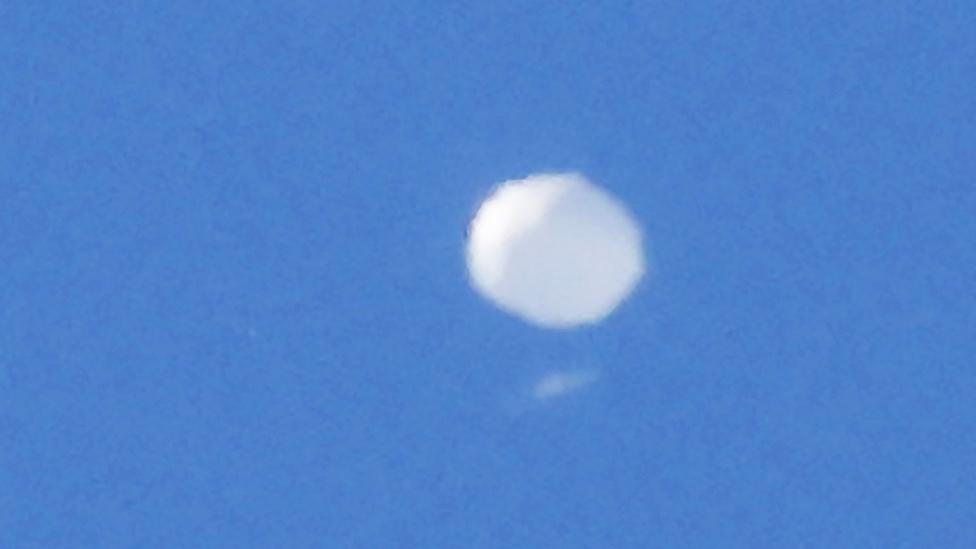
- Published3 February 2023
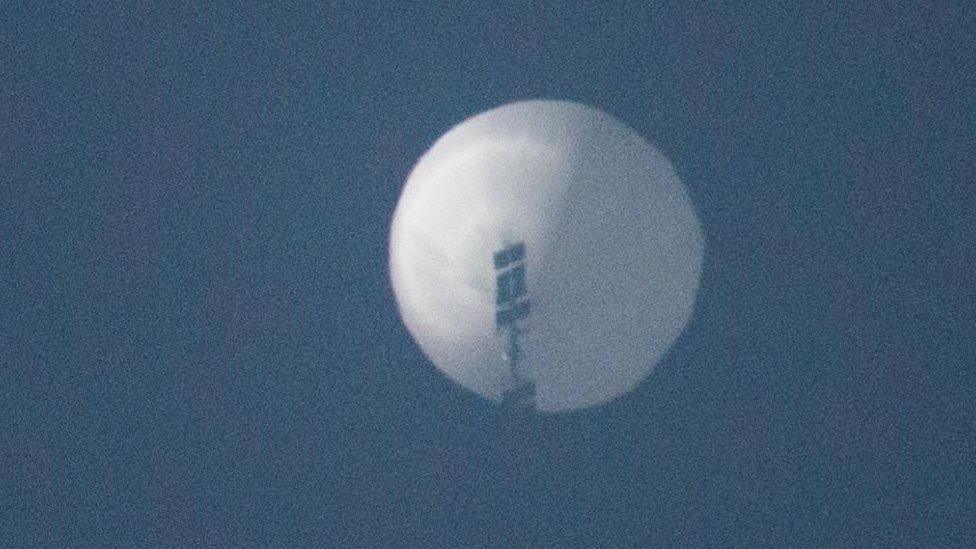
- Published17 January 2020
